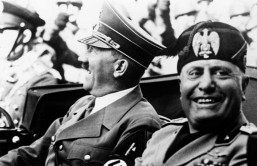It seems like ages ago, but remember the whole controversy surrounding the Chicago Cubs and their decision to start rookie phenom Kris Bryant at Triple-A Iowa at the beginning of this season? Rumors have resurfaced regarding the issue.
Bryant was clearly the Cubs' best hitter during spring training. The 23-year-old batted .425/.477/1.175 with 14 runs scored, 9 home runs and 15 RBIs in 14 games, but he still didn't make the MLB roster. He led the entire league in home runs and RBIs in spring training.
President of baseball operations Theo Epstein and general manager Jed Hoyer reiterated the youngster needed to work on some more things in the minors.
They weren't necessarily wrong. Bryant also struck out 14 times in those spring training games and his defense at third base needed a bit more polishing. Additionally, the team was using him a bit in the outfield, so getting more reps in the minors would better prepare him for MLB action in the event manager Joe Maddon wanted to use him at multiple positions (which he has this season).
However, what was alarming about the whole thing was that the Cubs waited the exact amount of mandated time (11 days) to promote Bryant and avoid having him become a free agent after the 2020 season (instead he'll become a free agent after 2021). They began his service time clock as late as they could, which MLBPA officials and Bryant's agent, Scott Boras, viewed as unethical.
Despite the unfavorable opinions and criticism that have engulfed the situation, it could be a difficult case for Bryant and the MLBPA to win.
"The union is still considering whether to file a grievance on behalf of Kris Bryant over the Cubs' decision not to start the season with Bryant," writes Jon Heyman of CBS Sports. "Union people believe it's a matter of 'good faith' and that any reasonable person would agree Bryant was good enough to make the team. Union people also believe the case was strengthened by Bryant's All-Star performance during the season, too. However, as MLB officials point out, everyone's been operating under these rules since 1990 and teams have been making similar calls during that whole time. Also, they say there's no rule mandating teams to put their best players on the 25-man roster at all times and that it's OK for teams to want to keep their best players for the longest possible time. MLB people also point out there needs to be some sort of cutoff number for free agency, and that the union negotiated the extra 11 days of leeway years ago. Beyond all these hurdles, no player has been willing to file such a grievance against his team, and the union wouldn't grieve such a case without a player's endorsement. So while there are points to be made regarding teams' decisions not to employ their best players (not just the Cubs), needless to say, it'd be a very tough case to win. As one MLB person put it, 'Do we want an arbitrator deciding who should be on the teams?'"
Bryant's rookie season has been sensational, and if not for his offensive performance, the Cubs may not be in position to make the postseason. He's batting .262/.364/.478 with 73 runs scored, 21 home runs, 79 RBIs and 12 stolen bases in 120 games.
But as Heyman noted, rules are rules. The Cubs did not commit an infraction or violation of any sort, so the MLBPA will need the strongest of cases to have an arbitrator rule in their favor.
If nothing comes out of the situation this time around, perhaps the MLBPA works to negotiate a different set of standards for service time in the next collective bargaining agreement after the 2016 season.








